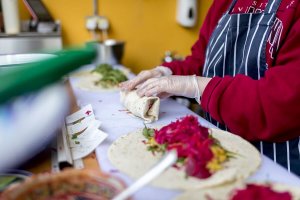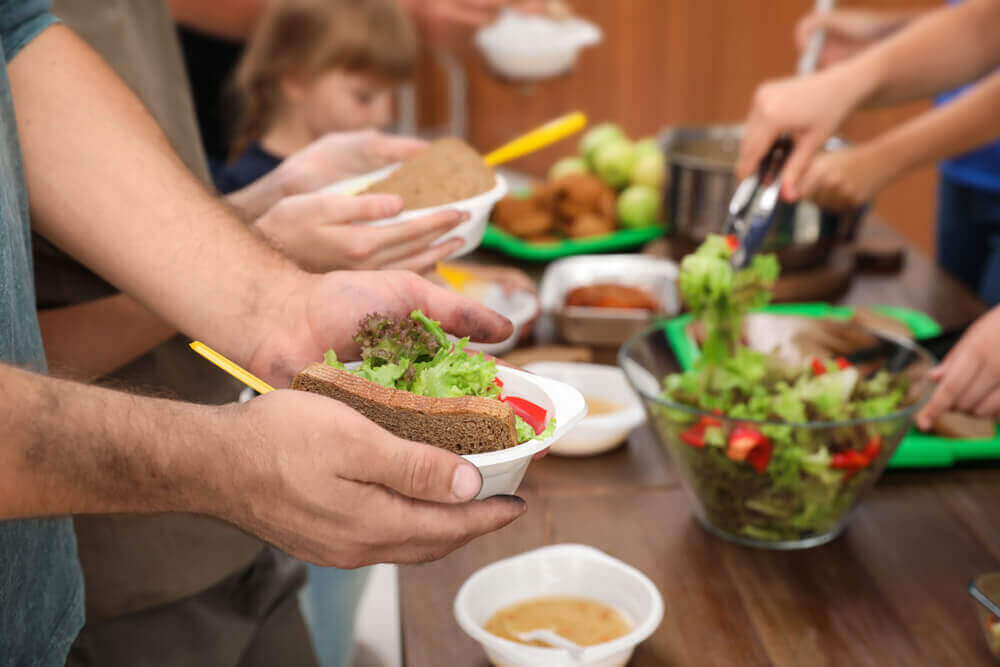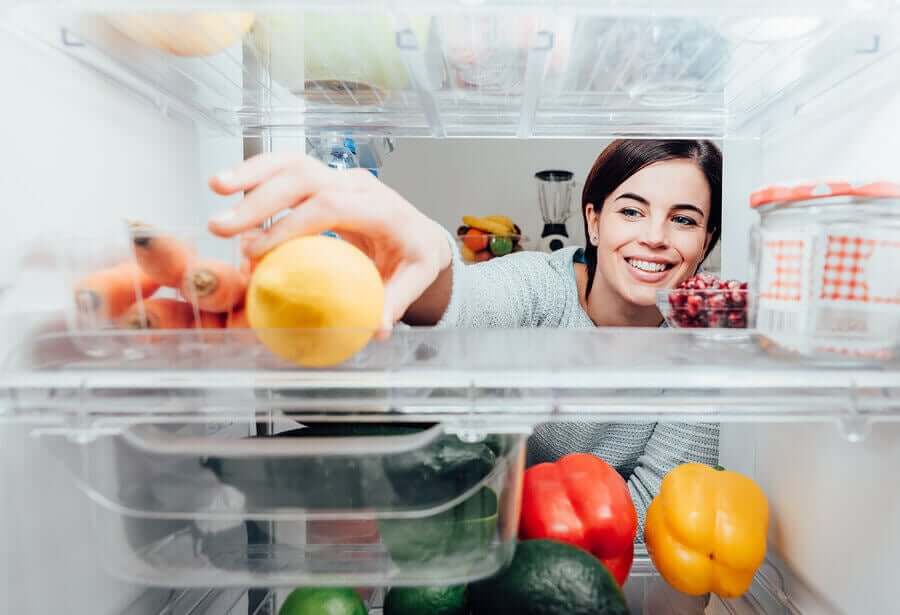Can Food Be Contaminated by Coronavirus?


Written and verified by the nutritionist Saúl Sánchez Arias
In the wake of the alerts associated with the coronavirus (Covid-19), many people are asking the question: can food be contaminated by coronavirus? After all, most strategies against this global pandemic focus on prevention. What do we need to know about it?
First of all, we need to be clear that it’s in our hands to delay or prevent the growth of infections. This will enable health agencies to properly allocate the resources available to deal with the situation. In this sense, measures such as washing our hands, disinfecting our homes and staying at home can help.
Entities such as the Centers for Disease Control and Prevention suggest that the virus can remain active on some surfaces. This could generate contagion if the person has contact with the virus and then touches his or her mouth, nose, or eyes.
But can food be contaminated by coronavirus?
Can food be contaminated by coronavirus?
The European Food Safety Authority (EFSA) reported in a statement that there are no studies that can confirm that food is a route of transmission of coronavirus. To date, there are no reports of virus transmission through food.
However, we need more research to compare these results and to draw a firm conclusion. What we do know for sure is that the virus is not very resistant to heat. For this reason, thorough cooking of food should greatly reduce the risk of infection through food.
Knowing this, we should avoid eating raw food, especially when we’re talking about the food of animal origin. We need to take extreme precautionary measures in the area of food to prevent the spread of the virus.

There a lot we don’t know about coronavirus
Despite the belief that its transmission to humans comes from the consumption of certain animals, there are not many scientific articles about this issue. In fact, most of the available articles talk about its epidemiological characteristics, but not about treatments, risk factors, or prevention.
For this reason, we advise extreme caution. Although food doesn’t seem to be a source of contagion, we need to have extreme food hygiene measures. Complete cooking of food and correct thawing measures ensure the absence of pathogenic organisms.
Find out: Prevent the Coronavirus When Shopping
Avoid contact to prevent spreading the coronavirus
The best thing we can do to prevent the spread of the virus is to avoid contact between people and to have good hand hygiene, especially after touching surfaces or handling objects. Before making any culinary preparation, good hand hygiene is essential to ensure to remove any trace of the virus on your hands.
Taking precautions when sneezing or coughing is also essential to reduce the radius of the virus’s activity. It’s time to heed health warnings and to be on the lookout for the latest accurate news.
The ways the virus spreads are still being studied and we’ll soon have more information about its ability to survive in food. For the moment, though, it’s best to eat food that has been properly packaged.

Read also: Coronavirus Disease (COVID-19) Symptoms
Coronavirus and food: Final reminders
The lack of knowledge about the coronavirus and its rapid spread is causing a state of alarm and social chaos. We need to remain calm and respect precautions to reduce the speed of infection as much as possible. This way, it’s more likely that the health services will be able to provide guaranteed care to all the patients who arrive daily.
Food hygiene is essential, as is hand hygiene. We need to cook our food thoroughly, even though the possible presence of the virus in food hasn’t been proven with certainty. Above all, caution and special care are recommended for the elderly and for people at risk, who could be most affected by the virus.
All cited sources were thoroughly reviewed by our team to ensure their quality, reliability, currency, and validity. The bibliography of this article was considered reliable and of academic or scientific accuracy.
- Velavan TP., Meyer CG., The COVID-19 epidemic. Trop Med Int Health, 2020. 25 (3): 278-280.
- European Food Safety Authority. (9 March 2020). Coronavirus: no evidence that food is a source or transmission route. EFSA. Recovered from https://www.efsa.europa.eu/en/news/coronavirus-no-evidence-food-source-or-transmission-route
- Centers for Disease Control and Prevention. (2020). How COVID-19 Spreads. CDC. Recovered from https://www.cdc.gov/coronavirus/2019-ncov/about/transmission-sp.html
This text is provided for informational purposes only and does not replace consultation with a professional. If in doubt, consult your specialist.








